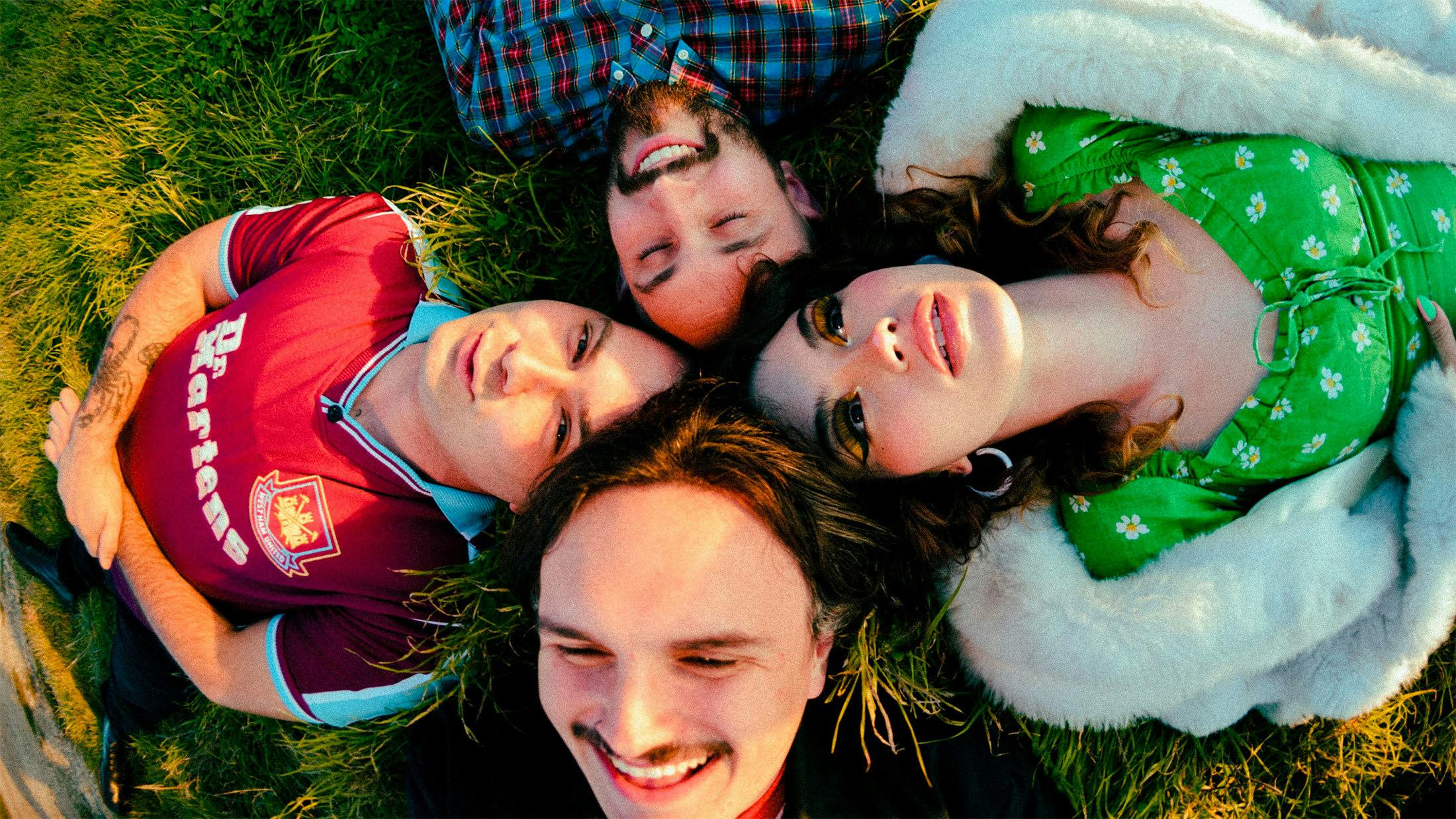From a “cursed” first four-date run supporting San Diego’s Absence Of Mine (they filled the slot as unannounced last-minute stand-ins, Kat had to call in sick to work, traffic collisions and gleeful chaos ensued) to a barrage of diverse all-dayers, backyard and basement shows, Scowl’s first year passed in a colourful blur. With each touring stop and song dropped, friends and fans jumped aboard. As crucial as creating bonds across the “tight-knit” west coast scene would prove to their rising reputation, so too would standing out – key to which has been a striking aesthetic.
Pressed for her punk-rock lightbulb moment, Kat paints a scene from her childhood, where she one day encountered a fellow customer at grocery store Trader Joe’s whose towering mohawk scraped the ceiling. “I was astounded,” she grins at the memory. “I just thought it looked so cool!” For Scowl, it was imperative to have that sort of visual hook, too.
Rather than relying on traditionally provocative imagery, Kat chooses to stand out from her gritty surrounds by clashing ‘soft’ motifs against the harder end of heavy music. Instead of shredded T-shirts and leopard print buzz-cuts, her look is built on archetypally ‘feminine’ make-up and fashion. Scowl’s artwork and merch designs revolve around floral imagery. Lush bouquets are fastened to the mic-stand at their chaotic shows. The concept’s even crept into her music, as on How Flowers Grow’s incongruously easy-going, sublimely sax-infused album centrepiece Seeds To Sow.
“I’ve always been a bit of a contrarian. When I first got into hardcore, I thought that the classic imagery was really cool, but I was still learning about my own identity: how I like to dress, who I am. I became comfortable with being a little more feminine. Everyone involved in hardcore – whether or not they present themselves as ‘hard’ – tends to be someone not to be messed with. The bands I really like nowadays are the ones who’re a little bit different and push the envelope. It’s about doing what you want. That’s the biggest metaphorical ‘Fuck you!’ This isn’t everybody’s thing. I respect that. But it’s my thing. And if I’m gonna be in a band, I’m gonna do my thing!”
